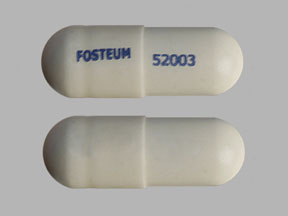Cholecalciferol/genistein/zinc glycinate Interactions
There are 387 drugs known to interact with cholecalciferol/genistein/zinc glycinate, along with 10 disease interactions, and 1 alcohol/food interaction. Of the total drug interactions, 16 are major, 117 are moderate, and 254 are minor.
- View all 387 medications that may interact with cholecalciferol/genistein/zinc glycinate
- View cholecalciferol/genistein/zinc glycinate alcohol/food interactions (1)
- View cholecalciferol/genistein/zinc glycinate disease interactions (10)
Most frequently checked interactions
View interaction reports for cholecalciferol / genistein / zinc glycinate and the medicines listed below.
- CoQ10 (ubiquinone)
- Crestor (rosuvastatin)
- Cymbalta (duloxetine)
- D3 (cholecalciferol)
- DHEA (dehydroepiandrosterone)
- Eliquis (apixaban)
- Fish Oil (omega-3 polyunsaturated fatty acids)
- Ginger Root (ginger)
- Ginkgo Biloba (ginkgo)
- Lexapro (escitalopram)
- Lyrica (pregabalin)
- Mounjaro (tirzepatide)
- Mucinex (guaifenesin)
- NAC (acetylcysteine)
- Nexium (esomeprazole)
- Probiotic Formula (bifidobacterium infantis / lactobacillus acidophilus)
- Protonix (pantoprazole)
- Quercetin (bioflavonoids)
- Ritalin (methylphenidate)
- SAMe (s-adenosylmethionine)
- Seroquel (quetiapine)
- Spikevax (COVID-19 mRNA (Moderna) vaccine)
- Synthroid (levothyroxine)
- Tylenol (acetaminophen)
- Vitamin B1 (thiamine)
- Vitamin B12 (cyanocobalamin)
- Vitamin B6 (pyridoxine)
- Vitamin C (ascorbic acid)
- Vitamin D3 (cholecalciferol)
- Vitamin K2 (menaquinone)
Cholecalciferol/genistein/zinc glycinate alcohol/food interactions
There is 1 alcohol/food interaction with cholecalciferol / genistein / zinc glycinate.
Cholecalciferol/genistein/zinc glycinate disease interactions
There are 10 disease interactions with cholecalciferol / genistein / zinc glycinate which include:
- breast cancer
- arrhythmia
- electrolyte imbalance
- hypercalcemia
- renal dysfunction
- renal dysfunction
- diabetes
- GI malabsorption
- malabsorption syndromes
- hepatobiliary dysfunction
Drug Interaction Classification
| Highly clinically significant. Avoid combinations; the risk of the interaction outweighs the benefit. | |
| Moderately clinically significant. Usually avoid combinations; use it only under special circumstances. | |
| Minimally clinically significant. Minimize risk; assess risk and consider an alternative drug, take steps to circumvent the interaction risk and/or institute a monitoring plan. | |
| No interaction information available. |
See also:
Further information
Always consult your healthcare provider to ensure the information displayed on this page applies to your personal circumstances.


